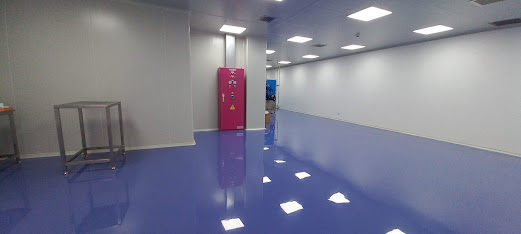Antimicrobial Epoxy Floors in Kenya and East Africa: Trending Floors
Why many food and healthcare in Kenya are increasingly choosing Antimicrobial Resin Floors -
Bettercoat Company Ltd specializes in antimicrobial flooring for industries requiring an extra level of antimicrobial protection. Food processing, beverage processing, pharmaceutical and chemical industries often wash down and sanitize their floors. Within these environments, floors that are easy to clean and sanitize are critical.
Our sanitary seamless
floors include both antimicrobial epoxy flooring and urethane flooring, and are
customized for the needs on each project.
What are Antimicrobial Epoxy Floors? How do they work?
Antimicrobial is an
additive that can be included in epoxy to kill microorganisms or stop their
growth. The antimicrobial agent added to the floor works at a cellular level,
inhibiting or stopping the growth of microorganisms and killing the pathogen.
Anywhere that
microorganisms, especially bacteria, can grow is considering microbial; this is
pretty much most surfaces. Interestingly, epoxy flooring is almost completely
antimicrobial, making it one of the most sanitary flooring choices for almost
any space.
Antimicrobial floors
have biostatic effect that kills mold, mildew, fungi, yeast, algae and bacteria
upon contact. The active antimicrobial agent works in a slow-release fashion
that will continue to kill unwanted organisms for the life of the floor.
Why are antimicrobial epoxy floors increasingly being adopted in the Kenyan commercial and industrial flooring market?
Antimicrobial epoxy floors help reduce the risk of infection in healthcare and food processing environments, prevents the growth of mold and mildew and is easy to clean and maintain. Epoxy flooring are the most common types of antimicrobial flooring. With
Antimicrobial flooring
has a surface intended to prevent the growth of bacteria, fungi and other
microbes. This is accomplished by adding specialized additives to the flooring
material as it is being manufactured. The antimicrobial chemicals released by
these additions either kill or stop the growth of germs.
Maintaining a clean
and hygienic environment is one of the critical benefit of antimicrobial
flooring. The usage of antimicrobial flooring can aid in preventing the spread
of dangerous bacteria and viruses in locations where hygiene is essential, such
as hospitals and food processing facilities. This is crucial in light of the
COVID-19 epidemic, which made the need for improved hygiene measures more
apparent. Antimicrobial floors have the advantage of being simple to maintain
and clean.
The Kenyan food
processing and healthcare industries are increasingly adopting antiomicrobial
epoxy floors antimicrobial flooring is becoming more crucial than ever in the
modern world. It is the best option for various businesses due to its capacity
to prevent the growth of dangerous bacteria and viruses, ease of maintenance,
slide resistance and low-VOC qualities.
Bettercoat Company’s
antimicrobial epoxy (resin) floors are made with an integral silver ion
antimicrobial additive to impede the growth of microorganisms, thus providing long-term
protection from a broad spectrum of bacteria, fungi, yeast, actinomycetes and
mildew.
www.bettercoat.co.ke
info@bettercoat.co.ke







Comments
Post a Comment